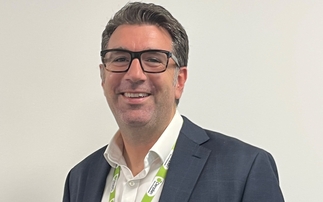It will take more than stagnant demand to kill off the healthcare cash plan. The resilient market, which was big in the 1960s, has endured worse and lived to tell the tale, writes Peter Madigan Click here to download pdf
The healthcare cash plan seems like an obsolete hangover from a bygone age.
The idea of paying into a scheme that specifically pays the cost of dental, optical and other outpatient treatments was born in an earlier time, in an age before the advent of a more comprehensive holistic State healthcare service.
Nevertheless, the cash plan market lives on and even if it is not thriving, it shows no signs of ebbing away, despite the fact that it appears to be under the radar of the majority of intermediaries.
According to data from the Laing and Buisson Health Care Cover Report, there were an estimated 2,861,000 contributors to cash plans in the UK in 2004 with an estimated 4,851,000 people covered under schemes.
With this figure translating as around 8% of the population, cash plans appear to still have a part to play in the healthcare provision of 21st century Britain, even if the market is a shadow of what it was in its heyday.
In the mid-1960s, over four million people contributed to a cash plan. That figure dropped throughout the following two decades before stabilising at around the three million mark in the late 1980s and staying there ever since.
Slight growth was witnessed in the market between 1995 and 1999, but the increase in contributors was negligible and promptly fell back by the same amount in following years. In 2004 the market fell further still, but again roughly within the same parameters the market has experienced for the past 15 years. With such minor falls often accompanied by similarly unimpressive gains many commentators have posited that the market is stagnant.
While the number of new contributors in the market did not expand, cash plan providers reported brisk business through 2005. "We experienced great top line growth throughout last year in terms of premium income. Admittedly though, new business volumes were similar overall to preceding years," reveals Raman Sankaran, director of strategic development at Healthsure. Other providers tell a similar story.
"Westfield Health enjoyed an outstanding year in sales and achieved a record number of policyholders in 2005," claims Jill Davies, executive director at Westfield.
Incongruous
While it seems somewhat incongruous that new policyholders are being acquired in a stagnant market, this appears to be the case.
"The explanation is that the efficient providers are prospering," says Bill Gaywood, chief executive at Medicash. "The fact that at least two firms could each add 10,000 new members in a year demonstrates that it is possible to grow the customer base in a stagnant market by aggressive sales and marketing.
If this is the case and contributors already within the cash plan market are switching, it seems to indicate that a reasonable number of intermediaries are at work in the cash plan market.
"The amount of business that we have received from brokers doubled in 2005," says Sankaran. "To put that figure in perspective, around 18% of our new business last year came through the intermediary channel. This increase was due to investment in better communication, better support for intermediaries and better marketing," he adds.
That may be true to a degree, but intermediaries say cash plans are simply extras that are sold in conjunction with private medical insurance (PMI) and that the increase is not down to better marketing,
"We are not looking to actively sell cash plans; all our current cash plans are sold on the back of the main PMI scheme. Typically, the management and senior staff will have PMI and the rest of the staff will have a cash plan due to the lower cost," says Julie Grinter, healthcare and group risk consultant at Jardine Lloyd Thompson.
So is the money providers are spending on marketing and support for intermediaries having an effect by increasing take up of cash plans? So far evidently not, but providers stress that rather than just being about commission, cash plans are necessary for the health of an adviser's book as a whole.
"Intermediaries should be driven by their desire to generate business but selling cash plans offers far more than commission alone. We believe it is important that cash plans are viewed within this context," says Davies.
"Selling cash plans helps intermediaries retain clients because it can open doors to sell the client other products. If they do not offer a cash plan, clients may go directly to a provider or a rival," she adds.
For those intermediaries who have taken the plunge, the last few years have seen a narrowing of the gap between the traditional PMI offering and cash plans. Increasingly, insurers are offering complementary therapies as part of PMI plans, a move that could be detrimental to cash plan sales. Advisers have suggested, however, that such a development, while possibly compromising the distinct identity of the cash plan, would be good news for brokers.
"The way to make cash plans a more integral part of an intermediary's portfolio is to make the benefits more enhanced and more attractive so the product is in between an old basic cash plan and a PMI policy," claims Grinter.
While this is one possible means of increasing intermediary involvement, those advisers who have struck the right balance to sell cash plans as a complementary benefit alongside PMI may be unhappy to see two individual revenue streams merge into one.
In spite of this, product development seems to be moving in the opposite direction - with basic service provision preferred to comprehensive care.
"In February 2006 we launched a new stand-alone dental, optical and employee assistance programme product, which has been designed to sit perfectly alongside existing PMI arrangements," reveals Suzanne Clarkson, head of public relations and corporate marketing at HSA.
Stress
"Although cash plans have proven very popular with employees on a voluntary paid basis, they have not traditionally made a mark in the corporate paid sector. This product includes elements that will help employers meet duty of care responsibilities around stress and eye testing," she adds.
Ironically, while advisers are enthusiastic about a product that bridges the gap between PMI and the traditional cash plan, scaled back products that cater specifically for employer's needs may hold the key to attracting more advisers. Given the opportunity to sell a more basic product that fulfils corporate duty of care obligations, brokers might be convinced to swallow their uncertainty over poor commission in favour of the large earning potential of setting up a cash plan for a medium to large-sized company.
"Circumstances are forcing the market to focus more heavily on the corporate sector and their liabilities regarding optical tests and access to physiotherapy. On top of this we are seeing increasingly onerous regulation from bodies such as the Health and Safety Executive so brokers are coming to play an even more important part," says Sankaran.
Some providers have expressed concern that the cash windfall the NHS has experienced in recent years may prove detrimental to the cash plan market as access to treatments such as physiotherapy become easier to access in the public sector. On the other hand, the reform of dental provision on the NHS, which will result in some prices increasing and others coming down, might provide a boost, although the impact of such a development is lessened by the ambiguity of whether patients will pay more or less. For intermediaries it is crucial to be able to illustrate to clients how effective a cash plan will be in saving them money.
It is hard to muster enthusiasm about the prospects of cash plans in the immediate future because the market forces that providers are pinning their hopes on may turn out to be inconsequential.
Optimism
Just as other legislative changes such as the Disability Discrimination Act have come to pass without providing a massive boost for the employee benefits market, it may transpire that employers' duty of care liability does little or nothing to increase cash plan uptake. Similarly, the NHS is showing scant signs of improvement despite the additional investment so it is unlikely that companies looking to take out cash plans would be dissuaded by an improving health service.
The optimism of cash plan providers is admirable - but it would take a brave man to put money on the market doing anything other than staying exactly where it is for the foreseeable future. In a sector that has been idle for so long, it would take major and wholesale changes to stir cash plan sales back into life and attract the intermediaries the market is so keen to snare.
Disclaimer
Synaptic Systems Ltd makes every effort to ensure any data provided is of the highest integrity. Synaptic Systems Ltd cannot accept any responsibility for any errors or omissions, nor can it warrant that any information supplied, or verified, by a third party is wholly accurate or complete.
Disclaimer
Synaptic Systems Ltd makes every effort to ensure any data provided is of the highest integrity. Synaptic Systems Ltd cannot accept any responsibility for any errors or omissions, nor can it warrant that any information supplied, or verified, by a third party is wholly accurate or complete.











